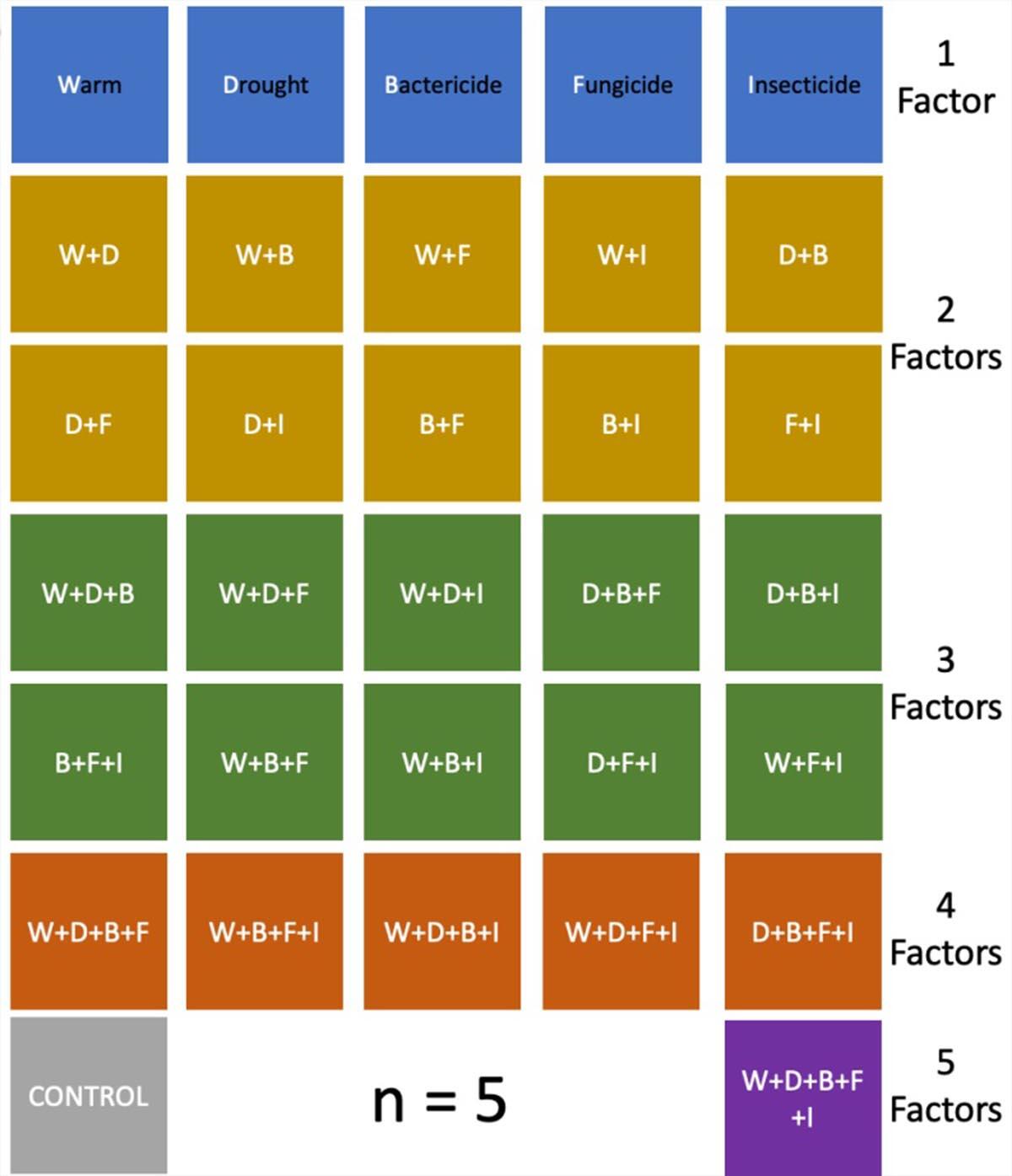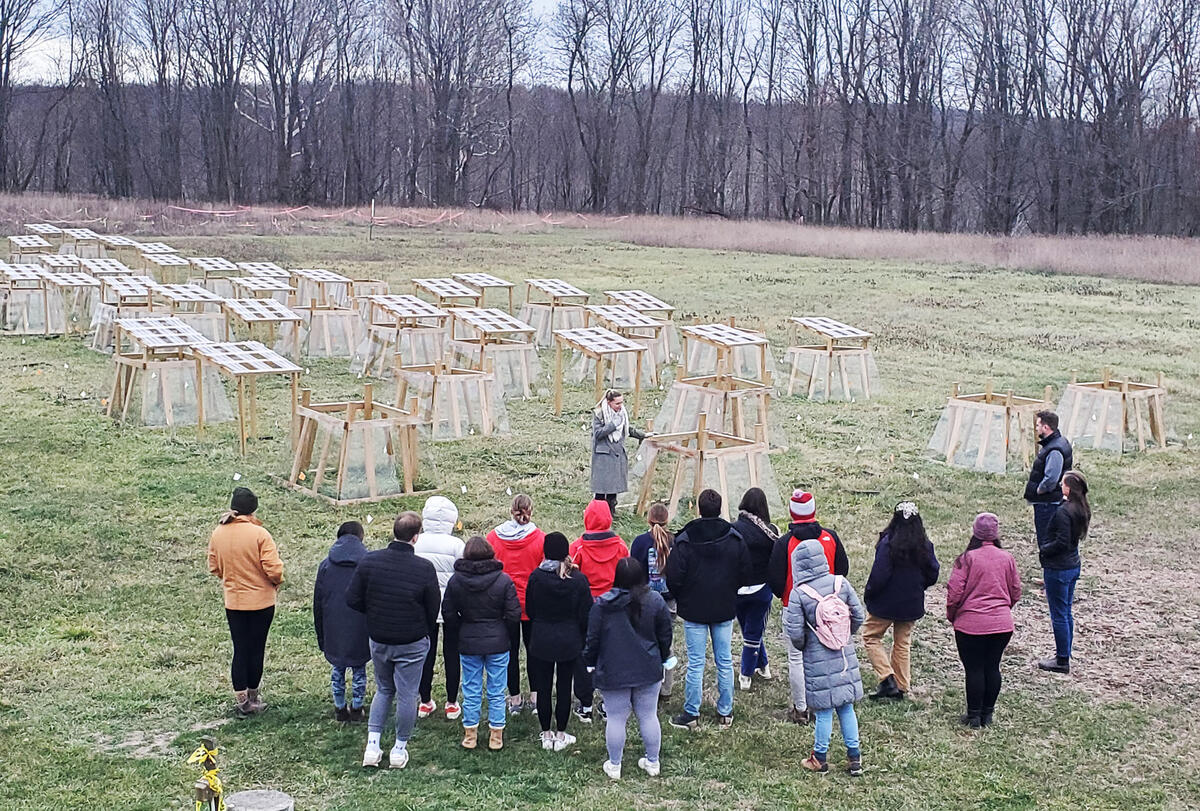
Many factors — including antibiotics, fungicide, rising temperatures, and changing precipitation patterns — are impacting the health of our soils. Scientists typically study these factors one at a time, but in the real world, soils are often hit with multiple stressors simultaneously. A farm field challenged by the changing climate, for example, might also be recovering from antibiotics in cow manure that wiped out important soil microbes.
The Stressed Out Soils (SOS) project is analyzing four soil stressors in different combinations to see how they interact, for a more realistic picture of the future of soil health in the Hudson Valley and beyond. Findings will inform recommendations for farmers and land managers tasked with improving soil health in a changing world.
In 80 plots on Cary Institute’s Millbrook, NY campus, we’re looking at 16 different ways that warming, drought, bactericides, and fungicides could combine together to influence soil health and productivity in grasslands. It’s possible that some factors will exacerbate each others’ impacts, while others balance each other out.

At each plot, we regularly measure carbon dioxide production to gauge the activity of soil microbes. We also measure plant and microbial production, plant height, and insect and plant biodiversity. Using metagenomics, we will determine which soil microbes are present and how well the community is functioning under each type of treatment.
While it’s necessary to understand how stressors impact soils in the present day, this project will also investigate how historical conditions and management decisions impact soil responses. Many grassland ecosystems have experienced historical disturbances such as drought, fertilization, and/or pesticide use. Using ‘legacy’ plots established in the first year of the study, we will perform field and lab studies to understand how previous exposure to stress shapes present day soil communities.
Ultimately, we hope that our study will help farmers in the Northeast to anticipate the challenges ahead, and develop strategies to adapt. We’ve built strong, collaborative partnerships with USDA’s Natural Resource Conservation Service, Cornell Cooperative Extension, and Dutchess Land Conservancy to support the dissemination and uptake of our findings and recommendations.
Outreach is an important part of SOS. Our fieldwork site acts as a living classroom where farmers and students can hone their ability to assess and improve soil health. Visits to our plots have been included in farm soil health workshops and a variety of educational programs. To set up a visit, please contact Jane Lucas at lucasj@caryinstitute.org.

- Publications
